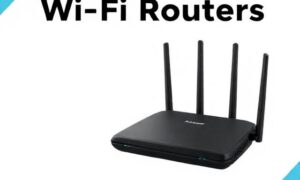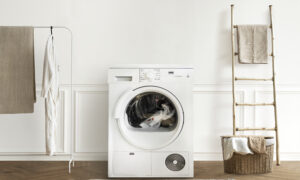Household appliances are essential to modern living, from refrigerators and washing machines to ovens and dishwashers. These devices simplify everyday tasks, improve efficiency, and enhance comfort. However, appliances represent a significant investment, and like any investment, they require regular maintenance to function at their best over time. Proper appliance maintenance not only extends their lifespan but also ensures optimal performance, reduces energy consumption, and lowers the risk of costly repairs.
In this article, we provide comprehensive tips on how to maintain your appliances effectively, helping you get the most out of your kitchen and home devices while improving Appliances Lifespan and Performance.
Why Is Appliance Maintenance Important?
Maintaining your appliances regularly can:
- Extend lifespan: Well-maintained appliances last longer, delaying the need for replacements.
- Improve performance: Clean and cared-for appliances operate more efficiently.
- Save energy: Appliances free from dust and grime consume less electricity.
- Prevent breakdowns: Regular inspections help spot small issues before they become major problems.
- Maintain warranty validity: Many warranties require proof of routine maintenance.
Whether you own a smart fridge, a high-efficiency washing machine, or a standard dishwasher, these guidelines apply broadly. As a result, they play a key role in improving Appliances Lifespan and Performance.
1. Read and Follow the User Manual
Every appliance comes with a manufacturer’s manual, which serves as a valuable resource for maintenance advice. The manual contains:
- Specific cleaning instructions tailored to the model
- Recommended maintenance schedules
- Troubleshooting tips
- Safety precautions
Ignoring these guidelines can void warranties or lead to improper care. Therefore, set aside time to read your appliance’s manual thoroughly when you first install it. Afterward, refer to it regularly to keep your devices running smoothly and support Appliances Lifespan and Performance.
2. Keep Appliances Clean Inside and Out
Dirt, dust, and food residue can hinder appliance efficiency. Here’s how to maintain cleanliness for key home appliances:
Refrigerators
- Wipe shelves, drawers, and walls with mild soap and warm water every few weeks.
- Clear expired or unused items to maintain airflow.
- Clean door seals with a damp cloth to ensure a tight seal.
- Vacuum refrigerator coils (usually located on the back or bottom) every six months to prevent overheating and reduce energy consumption.
Washing Machines
- Run an empty hot water cycle with washing machine cleaner or white vinegar monthly.
- Clean detergent dispensers and rubber door seals frequently.
- Leave the door open after washing to air out the drum and prevent mildew.
Ovens and Microwaves
- Wipe spills immediately after cooking.
- Perform a deep oven clean monthly using manufacturer-approved products or natural alternatives like baking soda.
- Remove and clean microwave turntables and interiors regularly.
Dishwashers
- Clean filters and spray arms monthly.
- Run an empty wash cycle with a dishwasher cleaner or vinegar every few weeks.
- Wipe door seals and edges to prevent mold buildup.
Regular cleaning is foundational to maintaining Appliances Lifespan and Performance, especially in high-use areas of the home.
3. Regularly Check and Replace Filters
Filters are crucial for maintaining appliance health and air or water quality. Neglecting filter maintenance can lead to poor performance and damage.
- Air conditioner and dryer filters: Clean or replace lint and air filters every 1–3 months to maintain airflow and efficiency.
- Vacuum cleaner filters: Wash or replace HEPA and other filters according to manufacturer guidelines, usually every 3–6 months.
- Water filters: Replace water filters in refrigerators, water dispensers, and coffee machines regularly to maintain taste and safety.
Keeping filters clean reduces strain on motors and prevents overheating, enhancing energy efficiency and supporting long-term Appliances Lifespan and Performance.
4. Inspect Seals, Hinges, and Door Gaskets
Worn-out seals and hinges can cause leaks, temperature loss, or structural damage.
- Refrigerator door seals: Inspect seals monthly for cracks or gaps. Replace damaged seals to maintain cold air and reduce energy costs.
- Oven gaskets: Check oven door gaskets for wear and tear. Faulty gaskets cause heat loss, leading to longer cooking times and increased energy use.
- Hinges and doors: Lubricate appliance hinges with food-safe lubricant to prevent squeaking or sticking.
Tight seals and properly functioning hinges are vital to keeping appliances energy-efficient and maintaining Appliances Lifespan and Performance.
5. Monitor and Maintain Appliance Settings
Optimizing your appliance settings can prolong their lifespan and save energy.
- Use eco or energy-saving modes on washing machines, dishwashers, and ovens when appropriate.
- Set your refrigerator temperature between 37°F and 40°F (3°C to 4°C) and freezer temperature at 0°F (-18°C) for best performance.
- Avoid overloading washing machines and dishwashers, which strain motors and reduce cleaning efficiency.
- Defrost manual defrost refrigerators and freezers regularly to prevent ice buildup.
Adopting smart usage habits complements physical maintenance and plays a major role in enhancing Appliances Lifespan and Performance.
6. Schedule Professional Maintenance and Repairs
While many maintenance tasks can be handled at home, it’s important to schedule regular professional servicing:
- Have HVAC systems, refrigerators, and washing machines inspected annually.
- Address unusual noises, leaks, or malfunctions promptly by consulting certified repair technicians.
- Keep records of maintenance and repairs for warranty and resale purposes.
Professional inspections can detect hidden issues that homeowners may overlook. Early intervention reduces the likelihood of breakdowns and helps ensure that your appliances maintain optimal Appliances Lifespan and Performance.
7. Protect Appliances From Power Surges and Environmental Damage
Power surges and poor placement can shorten appliance life:
- Use surge protectors or unplug appliances during electrical storms.
- Avoid placing appliances in damp, dusty, or extremely hot environments.
- Keep cords and plugs in good condition and away from moisture or heat.
These simple precautions can significantly reduce electrical damage and improve your appliances’ longevity.
8. Replace Aging Appliances When Necessary
Even with the best care, all appliances eventually reach the end of their useful life. When repair costs exceed 50% of the replacement value or efficiency drops, it may be time to upgrade.
Modern appliances are not only more energy-efficient but also smarter and quieter. Replacing old models with new, high-efficiency alternatives contributes to long-term savings and better overall Appliances Lifespan and Performance for your home ecosystem.
Bonus Tips for Specific Appliances
Coffee Machines & Kettles
- Descale regularly with a vinegar solution or descaling product to prevent limescale buildup, especially in hard water areas.
Toasters & Blenders
- Unplug and wipe down surfaces weekly.
- Empty crumb trays and clean blades or attachments thoroughly after use.
Smart Home Devices
- Keep firmware updated to ensure performance and security.
- Regularly check for app or software updates for connected features.
These extra steps help small appliances contribute to a more efficient and longer-lasting household setup.
Final Thoughts
In conclusion, regular maintenance of household appliances is essential to maximize their utility, reduce repair costs, and ensure energy efficiency. By following manufacturer guidelines, keeping appliances clean, checking filters, inspecting seals, and scheduling professional servicing, homeowners can dramatically improve Appliances Lifespan and Performance.
Whether you’re working with a top-of-the-line smart appliance or a classic household machine, consistent care and usage make all the difference. Ultimately, protecting your investment through maintenance not only saves money in the long run but also ensures your appliances function reliably when you need them most.
Take the time to implement these practices, and you’ll be rewarded with better performance, fewer breakdowns, and a more sustainable home environment.





















